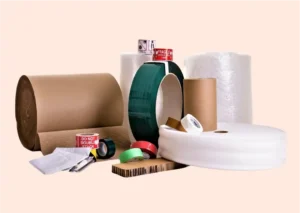Table of Contents
- 1 Your Blueprint for Precision Business Moves
- 2 Employee Transition and Involvement
- 3 Technical Setup and Infrastructure
- 4 The Move Itself: Execution with Excellence
- 5 Taking Your Business to New Heights Post-Move
- 6 Taking Your Business to New Heights Post-Move
- 7 Contact Us Today for Expert Guidance
- 8 FAQ
- 9 Author

When it comes to moving your business, precision is not just a goal—it’s a necessity. A well-planned move can set the foundation for your business’s future success. That’s why, as a business owner, understanding the ins and outs of a commercial move is essential. Let’s dive into the guide that will help you navigate this pivotal journey with confidence and control.
Key Takeaways
-
A comprehensive plan is crucial for a seamless business move.
-
Early preparation, including a detailed timeline, minimizes downtime and stress.
-
Clear communication with your team ensures everyone is on the same page.
-
Budgeting for the move should account for both expected and unexpected costs.
-
Partnering with the right moving company can make all the difference.
Your Blueprint for Precision Business Moves
Most importantly, the success of your business move hinges on a clear blueprint. This includes setting precise goals, creating a thorough timeline, and establishing clear communication channels with your team and partners. Because a move is not just about changing locations—it’s about ensuring your business continues to thrive throughout the transition.
The Critical First Steps in Planning Your Move
Before boxes are packed and furniture is moved, the groundwork for a successful move must be laid. Therefore, start by evaluating the reasons for your move and the long-term benefits it should bring to your business. Whether it’s for expansion, better facilities, or a more strategic location, your objectives will dictate your approach.
Essential Tools and Resources for a Smooth Transition
From moving checklists to project management software, having the right tools at your disposal can streamline the entire process. Equip your team with resources like digital floor plans, inventory apps, and communication platforms to keep everyone aligned and accountable.
Unexpected Expenses: How to Prepare
Every business owner knows that budgeting is critical, but when it comes to moving, it’s easy to encounter costs that weren’t part of the initial plan. That’s why setting aside a contingency fund is vital. This fund can cover anything from last-minute packing supplies to unforeseen delays. Remember, it’s better to be over-prepared than underfunded.
Financial Incentives: Tax Deductions and More
Besides that, it’s important to explore financial incentives that can alleviate moving expenses. For example, tax deductions for moving costs can be significant for businesses. Consult with a tax professional to ensure you’re taking advantage of every possible benefit. These savings can be redirected into investments for your new location.

Employee Transition and Involvement
Your team is your most valuable asset during a move. Involving employees early not only helps in distributing the workload but also in securing their buy-in and reducing resistance to change. Establish clear expectations and responsibilities to empower your staff throughout this transition.
Communication Plans for Staff
Clear communication is the backbone of any successful move. Keep your team informed with regular updates and involve them in decision-making processes. Whether it’s through meetings, emails, or a dedicated Slack channel, ensure that everyone knows what’s happening, why it’s happening, and what their role is.
Training for New Operations and Location Setup
Training is crucial for acclimating your team to new operations and workflows. Plan sessions that cover everything from safety protocols to technical setups in the new space. This proactive approach reduces downtime and ensures that your team hits the ground running on day one in the new location.
Technical Setup and Infrastructure
One of the most critical aspects of your move is the safe transfer of your IT infrastructure. The continuity of your business depends on a seamless transition of your technical systems. This means meticulous planning and expert handling of all your digital and technological assets.
Managing IT Relocation with Care
IT relocation requires specialized knowledge and careful handling. Work with your IT department to create a detailed plan for moving servers, computers, and other hardware. Ensure data backups are in place and consider hiring professionals who are experienced in moving sensitive equipment.
Ensuring Continuity of Operations
The goal is to have minimal disruption to your business operations. Plan the IT move over a weekend or during off-hours to avoid significant downtime. Test all systems as soon as they’re set up in the new location to troubleshoot any issues before the full business operation resumes.

The Move Itself: Execution with Excellence
When the moving day arrives, having a well-structured plan is key to execution with excellence. Every team member should know their role, and every item should be accounted for. This orchestration is what transforms a complex move into a series of manageable, successful steps.
Day-of-Moving Checklist
A day-of-moving checklist is a lifesaver. It should include last-minute packing, confirming details with the moving company, and a walkthrough of both the old and new premises. This checklist keeps everyone focused and ensures nothing is overlooked during the hustle and bustle of the move.
Overseeing the Physical Move
On moving day, designate a team leader to oversee the operation. This person will be the point of contact for the movers, address any issues that arise, and ensure the move adheres to the planned schedule. Their leadership can make the difference between chaos and a well-orchestrated transition.
Post-Move Adjustments and Follow-Ups
Once the dust settles, it’s time for adjustments and follow-ups. Unpack strategically, starting with the essentials that will get your business back up and running. Check in with your team to address any concerns and start the process of settling into your new business environment.
Taking Your Business to New Heights Post-Move
The move is just the beginning. Now it’s time to leverage the new opportunities your new space provides. Whether it’s tapping into a new market, expanding your workforce, or upgrading your facilities, use this move as a springboard for the next phase of your business growth.
Taking Your Business to New Heights Post-Move
Once the move is complete, it’s time to focus on the horizon. Your new location presents a wealth of opportunities waiting to be seized. Whether it’s a more prominent market presence, access to a broader talent pool, or enhanced operational capabilities, the post-move phase is your chance to redefine and revitalize your business strategy.
Leveraging New Opportunities
Consider the move as a reset button for your business. It’s an excellent time to re-evaluate your business plan and explore new avenues for growth. Look around your new environment – what are the needs of the local market? How can your business fill any gaps? Use this time to connect with local business groups and networks to establish your presence and build new relationships.
Growth and Expansion Strategies
Now that you’re in a new space, how will you expand your operations? Maybe it’s by scaling up production, introducing new product lines, or offering new services. It could also be the right time to invest in marketing and sales efforts to capitalize on the momentum of your move. Whatever your strategy, ensure it aligns with the long-term vision you have for your business.
Contact Us Today for Expert Guidance
If you’re feeling overwhelmed by the thought of moving your business, you’re not alone. But you also don’t have to go it alone. Our team of seasoned professionals is here to guide you through every step of your commercial move, ensuring precision and peace of mind.
With years of experience in commercial relocations, we understand the challenges and nuances that come with moving a business. We’re here to offer personalized solutions that cater to your unique needs. Don’t hesitate to reach out and take the first step towards a seamless transition for your business.
When you’re ready to start planning your move with precision, Contact Us for a detailed consultation and a custom quote tailored to your business’s specific requirements.
Why Choose Our Expertise for Your Business Move
Choosing the right partner for your move is about more than just trucks and boxes; it’s about entrusting your business’s future to someone who cares as much as you do. We bring not only our fleet and equipment but also our commitment to excellence, our attention to detail, and our promise to deliver a stress-free moving experience for you and your team.
Get a Custom Quote and Start Planning
Every business is unique, and so is every move. That’s why we offer custom quotes that reflect the specific needs of your business. From packing to transport to setup, we provide comprehensive services that address every aspect of your move. Start planning your successful relocation today by reaching out for a quote that respects your budget and your business objectives.
FAQ
Got questions? We’ve got answers. Here are some of the most common queries we encounter from business owners preparing to make their move:

What Should I Consider When Planning a Commercial Move?
When planning a commercial move, consider factors such as the timing of the move to minimize business disruption, the logistics of moving your equipment and inventory, and the communication plan for your employees and customers. It’s also essential to have a solid budget in place and to choose a reliable moving company that specializes in commercial relocations.
How Far in Advance Should I Begin Preparing for My Move?
Begin preparing for your move at least six months in advance. This gives you ample time to create a detailed plan, communicate with your employees, and coordinate with movers. Starting early also allows you to address any unforeseen challenges that may arise during the planning process.
How Can I Minimize Business Disruption During Relocation?
To minimize business disruption, schedule your move during off-peak hours or over the weekend. Communicate the move schedule with your customers and vendors well in advance. Make sure your IT infrastructure is set up and tested in the new location before the move to ensure a smooth transition.
What Are Some Common Pitfalls to Avoid When Moving a Business?
Common pitfalls include underestimating the time and resources required for the move, failing to communicate effectively with employees and customers, and neglecting to update your business address across all platforms. Avoid these by thorough planning, clear communication, and attention to detail.
Can You Provide a Checklist to Help Organize My Commercial Move?
Absolutely. A comprehensive checklist for your commercial move should include items such as inventory lists, packing supplies, utility setup, and data backups. It should also cover employee responsibilities, a timeline for each phase of the move, and post-move tasks such as unpacking and organizing your new space.



